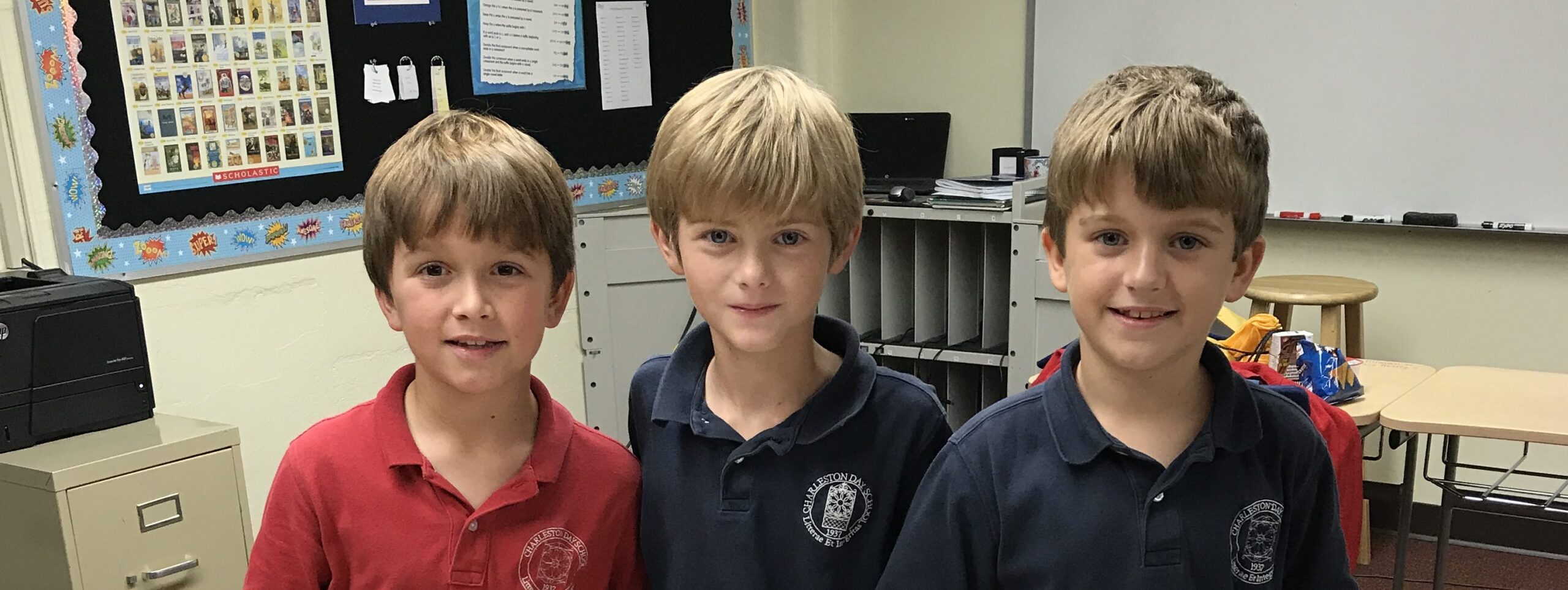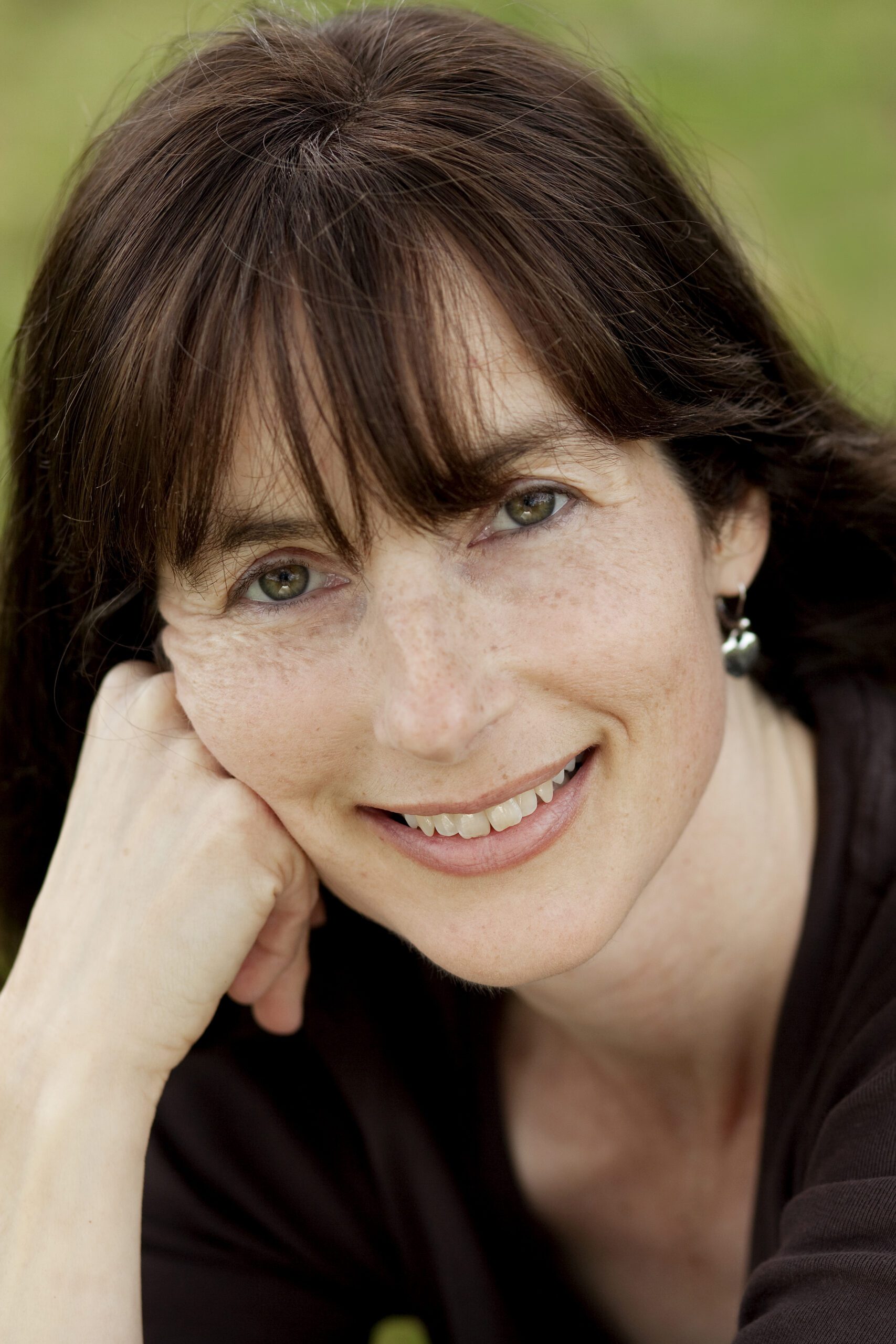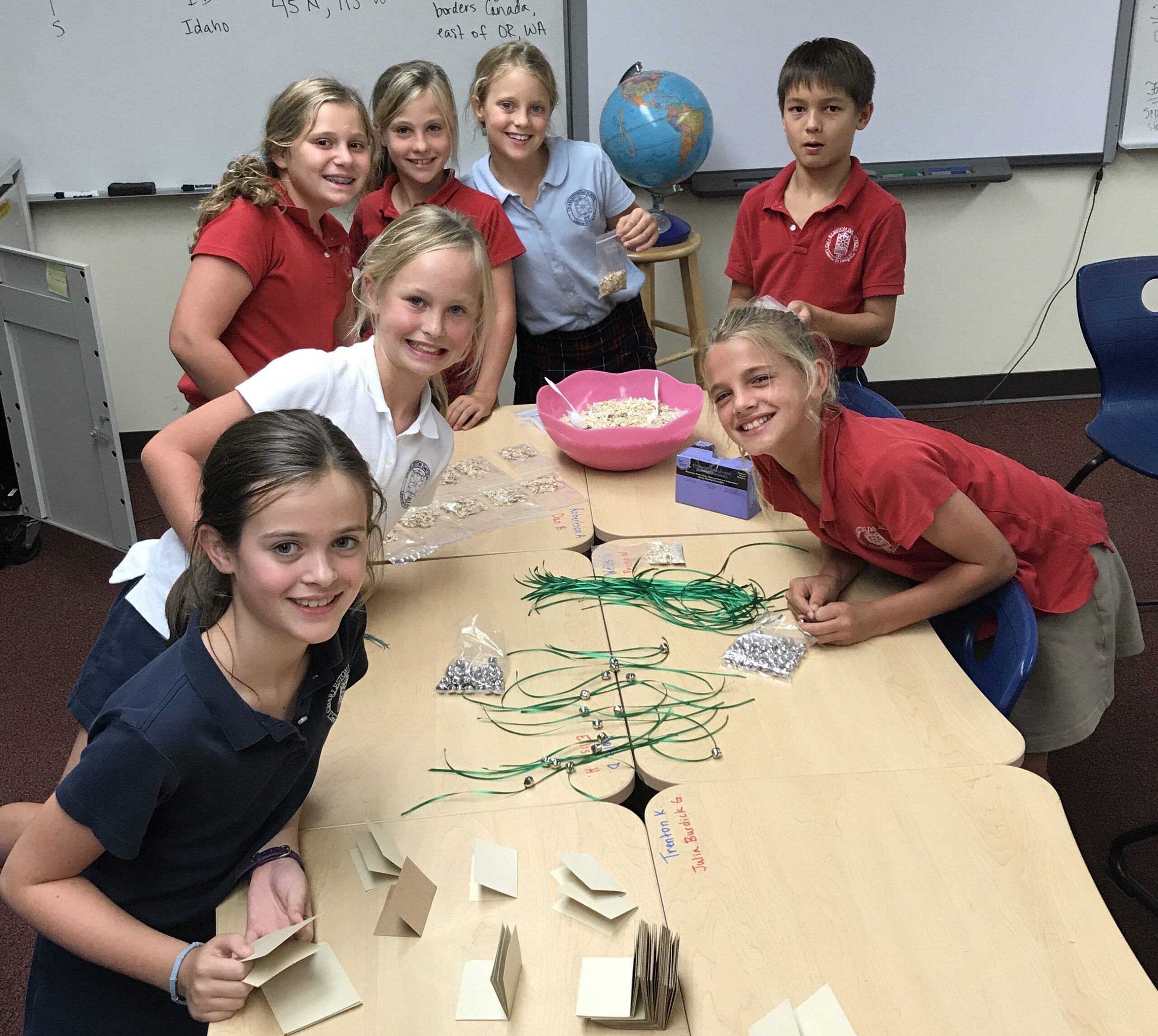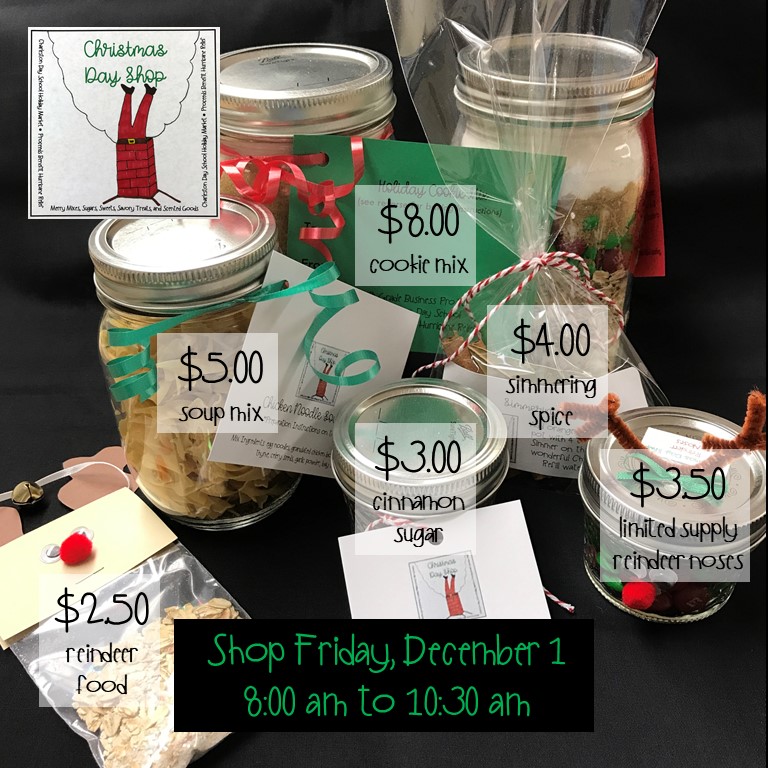
Author Jacqueline Davies on The Lemonade War and #KidsCan

The Lemonade War was intended to be a stand-alone book—but five books later, The Lemonade War and its entrepreneurial protagonists have prompted kids nationwide to raise more than $150,000 to end childhood cancers, in addition to many other causes. First Book asked author Jacqueline Davies, who has since founded the #KidsCan initiative, about how one book became five, and how a story catalyzed a charitable giving movement.
Video: See how Jacqueline Davies’ answered questions from Mrs. Tobin’s fourth grade class at Charleston Day School after they put on an entire holiday market inspired by The Lemonade War (embedded below). Read more about their market on our blog.
Interview with Jacqueline Davies
FB: Your Lemonade War series is beloved by children across the country. What were your expectations for the first book in that series and how has their success changed your expectations for the series?
JD: It’s funny to think of that first book (The Lemonade War) alone in “The Time Before the Series.” Because I never planned to write a series. The Lemonade War was intended to be a stand-alone title. Once readers closed the cover of the book, they would never hear about Evan and Jessie again, and I would never write about them again. At that point, I’d never written a series, and I certainly didn’t plan to begin with this book. But it turns out that I left a whopping question unanswered at the end of The Lemonade War: What happened to the $208 that goes missing from Evan’s pocket? Every time I visited a school, kids would ask me about that missing money. They really wanted to know what had happened to it. And when I explained that the money wasn’t the point of the book, it was just one small detail in the story, they explained to me that $208 was NOT a small detail, and I better come up with a better answer! So, after 18 months of hearing this question, I decided to write the sequel, The Lemonade Crime, which answers the question of what happened to the $208, and that led to the five-book series. Needless to say, my expectations for that first stand-alone title were very small indeed, and I never, ever could have predicted the reach and impact of the book. It’s been very surprising and gratifying.

FB: The Lemonade War looks at two siblings with their own unique skill sets. What skills do you think are most important for helping/serving others, and how can individual youth make a unique impact based on their unique skill sets? Can you tell us more about your #KidsCan initiative and what prompted it?
JD: Many might say that kids need to develop empathy in order to help or serve others, but I think even those who are still developing their empathic abilities can gain an enormous amount from practicing service. It’s the doing that counts when kids are young; the true empathy will follow. So even for young children in the primary grades who haven’t yet developed empathy, they can experience all kinds of positive rewards when they participate in a community-service project, including feelings of pride, the pleasure of group work, and personal gratification of reaching a goal.
What skills have I seen #KidsCan kids exhibit in helping/serving others? The ability to work hard, persevere, be creative, and take joy in watching a project take shape. Even a little competitiveness can help to serve others, just like it did in the book!
My #KidsCan initiative started spontaneously when schools and parents all over the country started sending me photos, newspaper articles, online postings, and letters about the amazing community service projects that kids were doing after being inspired by The Lemonade War. Food drives, hurricane relief, animal shelters, libraries, eldercare centers, kids’ cancer research programs—all have benefited from communities of children reading the book and deciding to make a difference. Sometimes, young people feel like they don’t have the power to change anything, but I know that #KidsCan. I’ve seen it!
FB: We know that students apply the concepts from The Lemonade War in many ways. Can you share with us a few examples of how you have seen kids use these concepts?

JD: Take a look at my Author Facebook Page (@Jacqueline_Davies_Author)! I post new examples all the time. There’s the school in the tiny rural town of Bells, Texas, that decided to launch a “Food War” in honor of the book, and so classes competed against each other to gather 3,438 food and personal hygiene items to donate to the local food bank. The winning team in the Food War (the mighty mighty fifth graders) were awarded the prize of painting their school principal yellow, like a lemon!
There’s a school in Oklahoma that held its own Lemonade War and raised $425, which they donated to the Hurricane Harvey relief effort. And there are the many, many schools that have participated over the years in The Great Lemonade War, which raises money for Alex’s Lemonade Stand Foundation, a nonprofit devoted to ending cancer in kids. To date, those students have raised over $150,000! Isn’t that incredible? Talk about #KidsCan! Every year, I’m honored to travel to the winning school and thank the students personally for their efforts to make the world a healthier place for all kids.
FB: How often do you come across aspiring writers while visiting schools? What is your advice to kids who want to be writers? How do your interactions with fans of your work influence your creative process and upcoming writing projects?
I love meeting kids who love to read and write. For those who want to become the best writers they can be, I always have three pieces of advice:
- Read as much as you can. And read all kinds of different books, not just the ones you know you’ll like. Experiment in your reading. Reading a book is like taking a masterclass on how to be a good writer.
- Write as much as you can. It seems obvious, but sometimes kids (and grownups) forget that in order to be a writer, you actually have to sit down and write something! Again, experiment with your writing. Try writing poetry or science fiction or a humorous story—just something that gets you out of your comfort zone.
- SHOW YOUR WRITING TO SOMEONE YOU TRUST. This can be a parent, a teacher, a librarian, or a friend. Listen to their feedback. What did they like and what do they think you could make better? Go back and revise your story. Try to make it better. Then show it again and get more feedback. This process of showing your work and revising the work is the single most important step in becoming a better writer.
Read as much as you can.
FB: It is obvious that you love meeting children and talking about your books in person. Can you talk about the significance of your school visits and share a story or two about any significant exchanges you may have had with attending students?
JD: When I visit schools, I show the little “books” I wrote when I was in elementary school. There are many of them! A story about a circle who wants legs. A story about an ant and a bear who get married. A story about an animal that is half-lion and half-octopus. A story about a magic hat. Very often, later in the day, a child will come up to me and show me the “book” he or she has begun “just like yours.” Often, I hear from their teachers that these are students who never had any interest in writing before, but now they are “on fire” to write a book. Some of these students are as young as kindergarten. They are just beginning to learn how to put letters together to form words. It thrills me to think that in a few years, they’ll be writing their own little books and someday I might be the one standing in line, waiting for their author’s autograph on a book they’ve written.
FB: What is the funniest question a child has ever asked you about your books?
JD: Once, one child asked me if, because I write funny things in my books, I was afraid of “someday losing my dignity.” I politely explained that I never had any dignity to begin with, and so I wasn’t worried about losing it!
FB: How has your childhood impacted your writing? How has raising children impacted your writing?
JD: Big questions! My mother always encouraged me to read as a child, and she did this simply by reading herself. Every evening, after getting us ready for bed, she would curl up with a book of her own, and so I came to regard reading as a regular part of every day. I am convinced that the amount (and quality) of the reading I did as a child paved my path to becoming a writer. As for my own kids, the stories I could tell! Wait a minute, I have told those stories—in my books. Yes, bits and pieces of my children’s lives have found their way into The Lemonade War series. I can honestly say that without having children of my own, I wouldn’t have had the wealth of material or the depth of experience necessary to write a story that comes alive.
I am convinced that the amount (and quality) of the reading I did as a child paved my path to becoming a writer.
FB: What are the best three things about being a children’s book author?
JD: Three?!? How can I choose just three? There are many wonderful things about being a writer. Here are a few of my favorites. (1) I get to use my imagination every day. Some people like to sing. Some people like to play video games. I like to daydream. And the first step for any book is to daydream. I’ve always had an “overactive” imagination, so it’s great to let it run wild and call it “work.” (2) I really do enjoy playing with words. I like arranging them and rearranging them on the page, listening to how they sound, how they make me feel, how they surprise me. I like the challenge of seeing if what I have in my head can be translated onto the page so that someone else can read it and see what was in my head in the first place. It’s like a really cool magic trick. (3) I love traveling to schools and sharing with kids my excitement about books. It’s really fun to have passionate discussions about what we’re reading and what we liked best about a particular book. I get some of my best book suggestions from kids I meet. (4) I know! You asked for only three “best things” but I had to include a fourth: meeting other children’s authors and illustrators. They are some of the most creative, kind, zany, thoughtful people on the planet.
[Children’s authors and illustrators] are some of the most creative, kind, zany, thoughtful people on the planet.
***
See how Jacqueline Davies’ answered questions from Mrs. Tobin’s fourth grade class at Charleston Day School after they put on an entire holiday market inspired by The Lemonade War.
